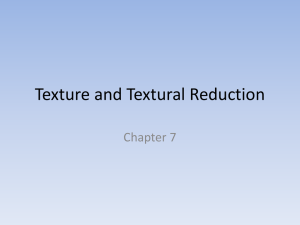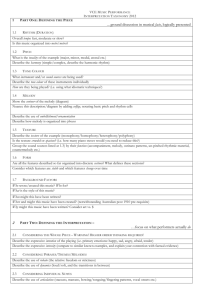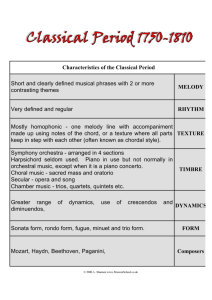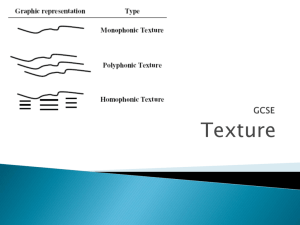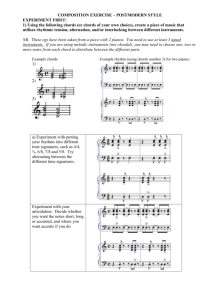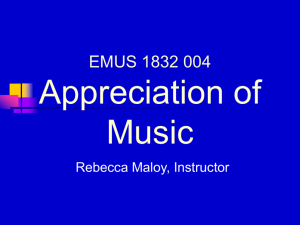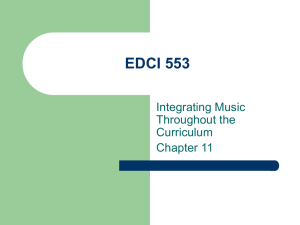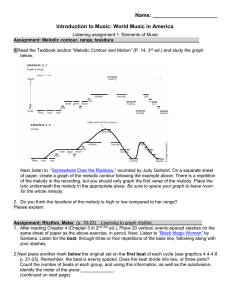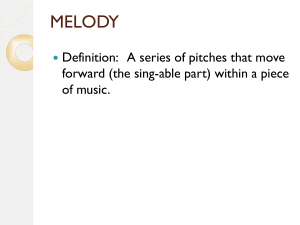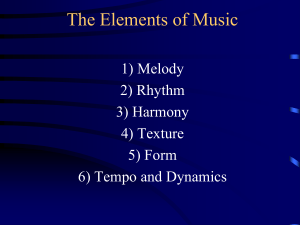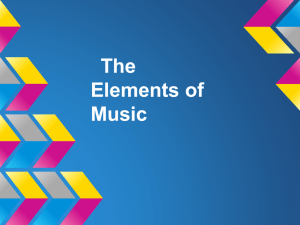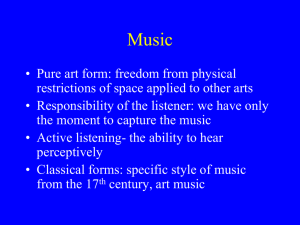VCE listening taxonomy
advertisement
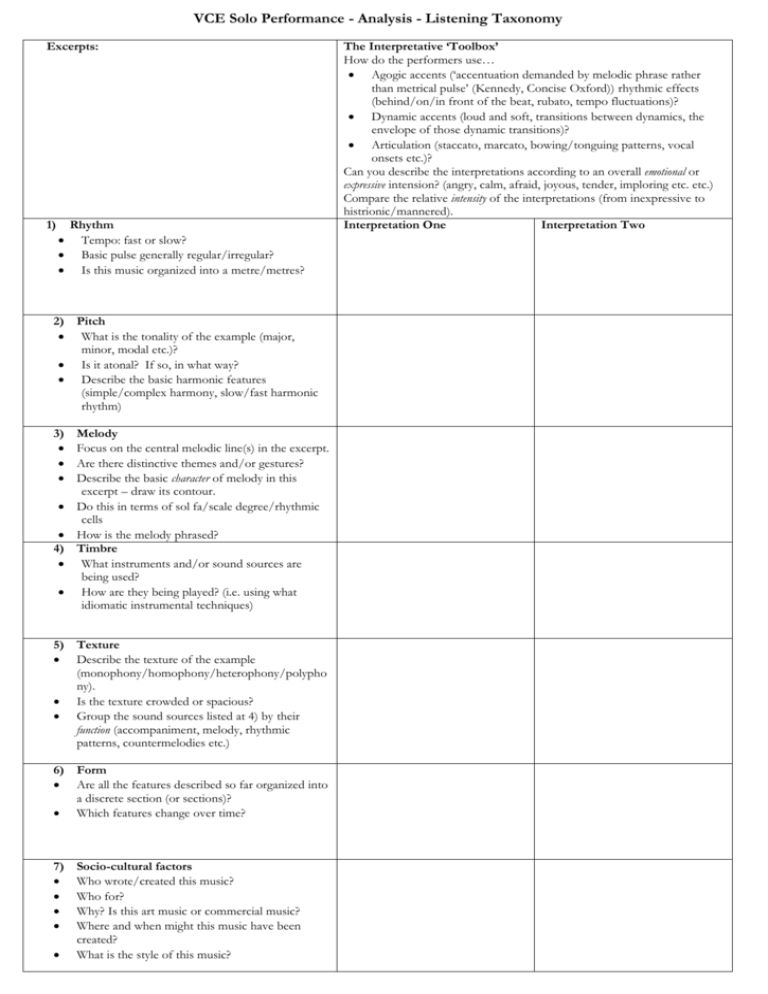
VCE Solo Performance - Analysis - Listening Taxonomy Excerpts: 1) Rhythm Tempo: fast or slow? Basic pulse generally regular/irregular? Is this music organized into a metre/metres? 2) Pitch What is the tonality of the example (major, minor, modal etc.)? Is it atonal? If so, in what way? Describe the basic harmonic features (simple/complex harmony, slow/fast harmonic rhythm) 3) 4) Melody Focus on the central melodic line(s) in the excerpt. Are there distinctive themes and/or gestures? Describe the basic character of melody in this excerpt – draw its contour. Do this in terms of sol fa/scale degree/rhythmic cells How is the melody phrased? Timbre What instruments and/or sound sources are being used? How are they being played? (i.e. using what idiomatic instrumental techniques) 5) Texture Describe the texture of the example (monophony/homophony/heterophony/polypho ny). Is the texture crowded or spacious? Group the sound sources listed at 4) by their function (accompaniment, melody, rhythmic patterns, countermelodies etc.) 6) Form Are all the features described so far organized into a discrete section (or sections)? Which features change over time? 7) Socio-cultural factors Who wrote/created this music? Who for? Why? Is this art music or commercial music? Where and when might this music have been created? What is the style of this music? The Interpretative ‘Toolbox’ How do the performers use… Agogic accents (‘accentuation demanded by melodic phrase rather than metrical pulse’ (Kennedy, Concise Oxford)) rhythmic effects (behind/on/in front of the beat, rubato, tempo fluctuations)? Dynamic accents (loud and soft, transitions between dynamics, the envelope of those dynamic transitions)? Articulation (staccato, marcato, bowing/tonguing patterns, vocal onsets etc.)? Can you describe the interpretations according to an overall emotional or expressive intension? (angry, calm, afraid, joyous, tender, imploring etc. etc.) Compare the relative intensity of the interpretations (from inexpressive to histrionic/mannered). Interpretation One Interpretation Two
